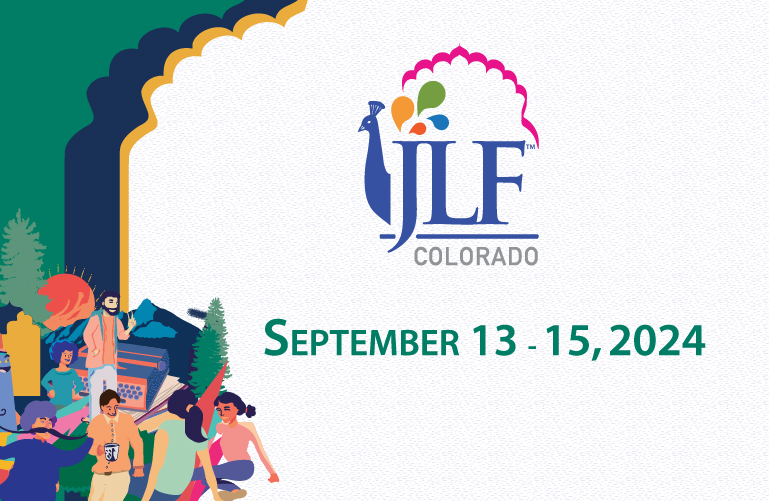

Orientations: Writing Sexuality
By Jaimie Epstein, Official ZEE JLF@Boulder Blogger
In Janice Gould’s poem “The Girl I Used to Be,” from her collection The Force of Gratitude, the subject rises from a clear Sierra stream, “gasping from that brutal creek, terrified, but absolutely clean.” This is a metaphor for the psychic rebirth that each LGBTQ person has to undergo on their journey to owning who they are—not just by coming out but by embracing radical self-acceptance. Each person’s journey of rebirth is as unique as the circumstance of where they were born the first time around.
For Amber Cantorna, the home-schooled daughter of a Focus on the Family executive, coming out meant losing her entire family. Despite the fact that “family values” are at the core of the Christian fundamentalist sect, that’s what drove a wedge between them. “What’s supposed to bind you together is actually what drove us apart,” she says. Her parents’ reputation and maintaining the prescribed appearance of family was evidently more important to them than their own daughter according to her. She hasn’t had contact with her family for years, and they haven’t met her wife. “I can count on one hand the number of people who are still in my life who were in my life before I came out,” she says. “I’ve had only one cousin who has stood by me.”
Crisosto Apache, a poet and Two Spirit advocate, is a Mescalero Apache who grew up on a reservation influenced by fundamental religion but also by tribal cultural beliefs that was seemingly more open-minded. The elders even talked about a time when gender and sexual expression was more fluid. (FYI: The Navajo evidently believe in four and sometimes six genders, or spirits.) Apache says he’s one of the fortunate people whose family accepted him, but that he grew up “with a lot of fears dealing with violence, discrimination, decompartmentalizing—things that no one should have to deal with.”
Growing up near Kamathipura, Bombay’s red-light district, Anosh Irani was a witness to what he calls the deep wound of rejection faced by the transgendered, which drives his recent novel The Parcel, about a transgendered sex worker. “My pain is absolutely zero compared to what I was witnessing,” he says. His connection, as a writer “was that I was inspired by the bravery of individuals and horrified by what people do to each other.”
Born in San Francisco and raised in New Zealand and Michigan, Minal Hajratwala wrote Leaving India: My Family’s Journey from Five Villages to Four Continents so that her huge splayed-all-over-the-world family (she has 35 first cousins) would know who she was, but “I realized that when the book came out, it would be this BIG coming out.” This was a time before social media, before anyone could just look you up and see what you were up to. “I came from a very conservative family of arranged marriages,” she says. “My brother dating a white woman at the same time was a very big deal—it was a radical departure from the way we were raised” and was very difficult. Her parents did come around over the years, and her book was a big part of it. In fact, when her father was dying, he said to her wife: “Don’t let anyone tell you you don’t belong in this family.”
The word for transgender in India is hijra, which means “to migrate.” Although in 2014 India’s Supreme Court gave the hijra legal status as a third gender, they, like other LGBTQ people are constantly migrating to find a home in their own bodies and in society as well, to complete their journey home.


Leave a comment